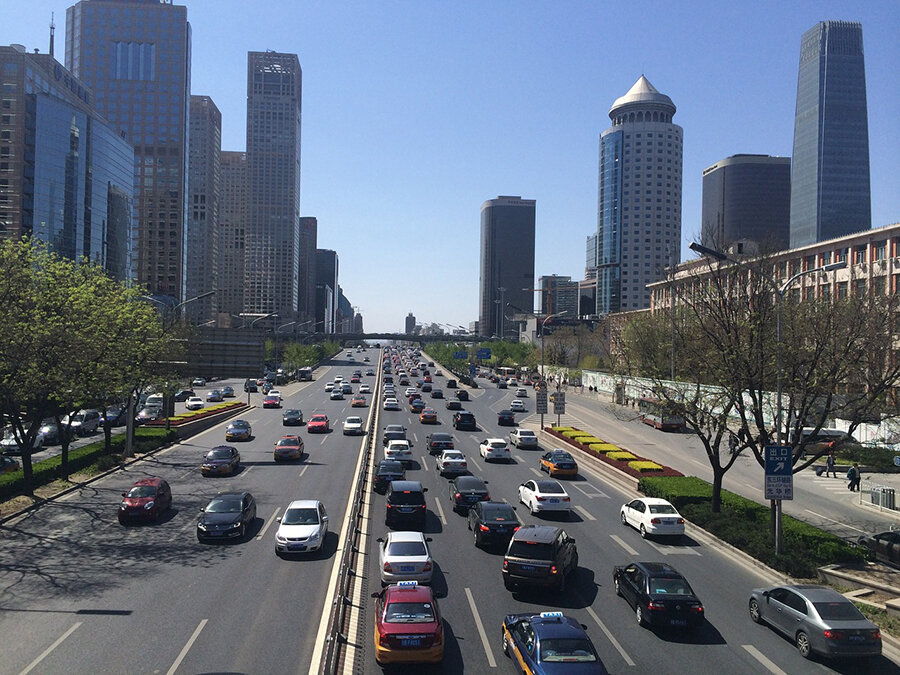read also
 Denmark Set to Lead Nordic Growth Despite Novo Pressure
Denmark Set to Lead Nordic Growth Despite Novo Pressure
 Sweden Urges Citizens to Hold Cash for Emergencies
Sweden Urges Citizens to Hold Cash for Emergencies
 Indonesia Faces Growing Credit Rating Pressure
Indonesia Faces Growing Credit Rating Pressure
 Poland Rethinks Rate Cuts as Iran War Risks Rise
Poland Rethinks Rate Cuts as Iran War Risks Rise
 UAE Airport Losses Reach One Million Dollars Per Minute
UAE Airport Losses Reach One Million Dollars Per Minute
 UAE Housing Market Enters Moderate Cooling Phase
UAE Housing Market Enters Moderate Cooling Phase
Chinese Developers Begin 2025 With Deepening Debt Woes

Shares of Sunac China Holdings Ltd., a bankrupt Chinese developer, plunged by 30% in Hong Kong on the morning of January 10, 2025, marking the steepest decline since October 8. This came after the company, once a market leader, faced another liquidation petition, according to Bloomberg.
Sunac, known for its luxury residential complexes in Beijing, had restructured its offshore debt in 2023 but is now facing concerns about its ability to meet new debt obligations. Meanwhile, China Vanke Co., one of the country's largest developers, must repay $4.9 billion in debt this year. The company’s ability to secure new financing remains uncertain. Dollar bonds issued by Vanke, yielding 3.5% and maturing in 2029, have fallen by about 7 cents since the start of the year, reaching their lowest level since September.
Adding to the sector’s troubles, a Hong Kong court in January ordered the liquidation of a key offshore subsidiary of China Evergrande Group. Three other major developers, including Country Garden Holdings Co. and Times China Holdings Ltd., are expected to file liquidation petitions in Hong Kong this month. The overall index tracking Chinese developers has dropped approximately 12% this year, far outpacing the 4% declines in both the Hang Seng benchmark index and the CSI 300.
Struggles With Debt Restructuring
Many developers are still working through restructuring plans. Country Garden recently proposed new terms to key lenders to reduce its debt and borrowing costs, but approval is pending. Logan Group Co., which declared a default, has submitted a revised restructuring plan for its $8 billion offshore business.
Despite Beijing's efforts to stabilize the housing market, the financial health of developers continues to deteriorate. The government has cut borrowing costs for existing mortgages, relaxed home purchase restrictions in major cities, and reduced transaction taxes. These measures have helped lower costs for homebuyers looking to upgrade their properties in select cities.
Signs of Stabilization Amid Long-Term Decline
Sales figures showed some improvement in October, and December was characterized by stabilization after a prolonged slump. According to China Real Estate Information Corp., monthly sales by the top 100 real estate companies remained flat year-over-year at ¥451.4 billion ($61.8 billion). November saw a 6.9% annual decline, but sales rose 24.2% compared to the previous month.
However, the broader picture remains grim. In 2024, total sales by the top 100 developers fell by 28.1%, worsening from the 16.5% decline in 2023. "If housing sales do not recover soon, the specter of weak cash flows will continue to haunt Chinese developers reliant on high-yield properties," said Gary Ng, Senior Economist at Natixis SA. He added that while first-tier cities have shown signs of recovery, challenges are much greater in smaller municipalities.
Potential Defaults Loom in 2025
Without a significant recovery in the sector, developers will struggle to meet debt repayment deadlines. According to JPMorgan Chase analysts, Chinese real estate companies are expected to be the largest source of defaults in Asia in 2025. They predict multiple liquidation petitions, stock price declines, and massive debt burdens as the real estate crisis enters its fifth year with few signs of improvement.
A new action plan introduced by China's National Development and Reform Commission may offer some relief. The plan proposes eliminating local protectionism, safeguarding property rights, and promoting fair competition. It recommends standardizing market entry regulations to bypass restrictions that deter investors in certain industries.
Key measures include introducing a code of conduct for market oversight, revising rules that allow officials to impose arbitrary administrative penalties, and removing residency restrictions that prevent individuals from accessing social welfare in the cities where they work.
Outlook and Challenges
While these initiatives may help alleviate structural issues, the recovery of China's real estate sector is far from assured. Developers remain vulnerable to weak cash flows, declining sales, and tightening liquidity. For many, the road to recovery hinges on stabilizing sales and regaining investor confidence—a challenge compounded by the broader economic slowdown and longstanding structural imbalances.


